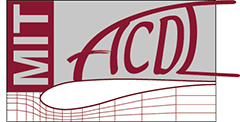ABSTRACT: In this talk we’ll focus on exploring three themes, that are combining together to bring about an acceleration in the accuracy and speed of CFD; particularly for industry. Using examples from automotive, aerospace and manufacturing we’ll look at impact of cutting edge HPC on CFD performance and we’ll look at how the development of high-fidelity CFD e.g. WMLES, HRLES, is accelerating the need for access to large scale HPC. The onset of COVID-19 has also meant a large increase in the need for remote visualization with greater numbers of researchers and engineering needing to work from home. This has also accelerated the adoption of the same approaches needed towards the pre- and post-processing of peta/exa-scale CFD simulation and we’ll look at how these are more easily accessed via a cloud infrastructure. Finally, we’ll explore perspectives on integrating ML/AI into CFD workflows using data lakes from a range of sources and where the next decade may take us.
Bio: Dr Neil Ashton is a Principal Computational Engineering Specialist at Amazon Web Services (AWS) as well as being a Fellow of the Institute of Mechanical Engineering (IMechE). He leads the Amazon-wide CFD working group and acts as a CFD subject matter expert across the diverse departments using CFD at Amazon. Prior to joining AWS he obtained a Masters and PhD at the University of Manchester, and previous positions were at the University of Oxford, NASA Ames Research Centre, Lotus Formula 1 Team as well as consultancy roles for Formula 1, Audi, British Cycling, Williams Advanced Engineering and others. His expertise is on applying and developing the next generation of Computational Fluid Dynamics approaches with a particular focus on interplay between high-fidelity turbulence models, Machine Learning and High-Performance Computing (HPC). He has authored over 35 papers in leading international journals and conferences and has had leadership roles including chair and lead organiser for the ICCFD10 conference, creator and lead organisor of the Automotive CFD Prediction Workshop (whose 4th edition is happening in September 2024), and has lead the hybrid RANS-LES technical working group for the 3rd and now 4th AIAA High-Lift Prediction Workshop.

